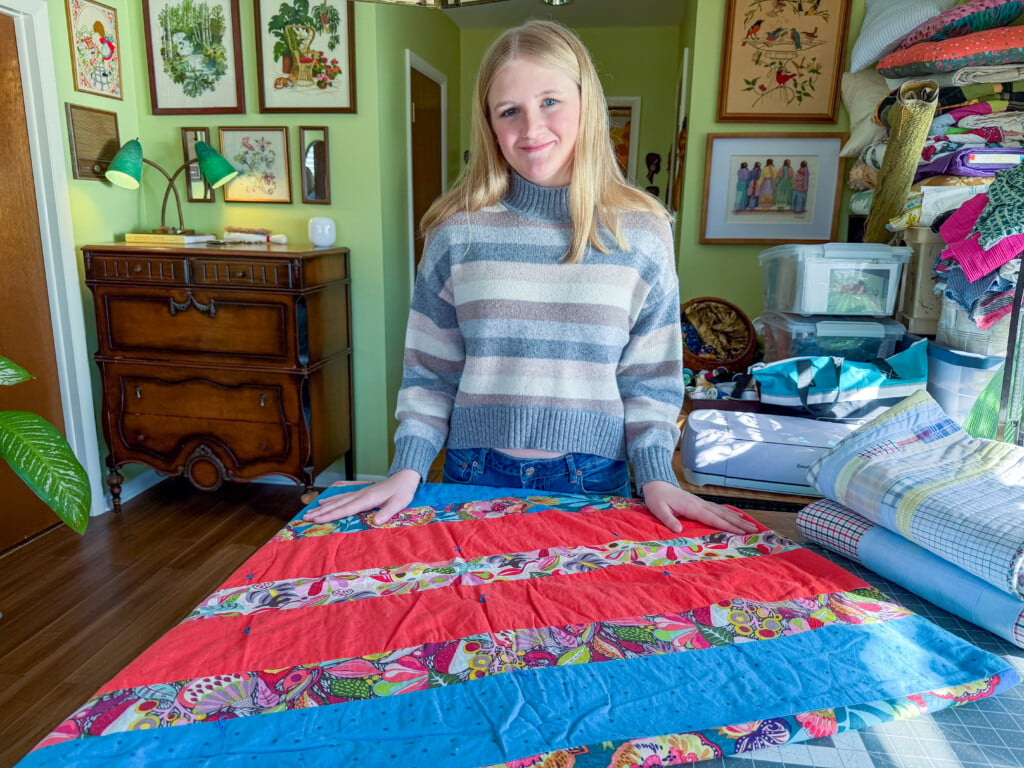What Parents Need to Know About Appendicitis
Sponsored by The Children's Hospital at Saint Francis
TulsaKids editor Betty Casey interviews Barry Berch, M.D., about appendicitis. Dr. Berch is a fellowship trained, board certified pediatric general and thoracic surgeon. He provides a broad range of surgical services for infants, children and teens at The Children’s Hospital at Saint Francis.
What is appendicitis?
The appendix is a portion of our intestine, sort of an out-pouching, finger-like protrusion off the first part of the colon, where the small intestine meets the large intestine. Appendicitis is inflammation of the appendix, which can lead to infection, sometimes very severe infections.
Appendicitis is a lot more common than many people think, certainly a lot of parents. The more people know about it, the more quickly they can get help for their child, which can prevent serious problems.
What are the signs of an inflamed appendix that parents can watch for?
Classically, pain. The child is going to say, “My belly hurts.” Usually, it will be on the right, lower abdomen just above the hip- bone area, between the point of the hip and the belly button. But you see kids present in a variety of ways. Sometimes pain follows a generalized feeling of being unwell. They may have some vomiting, fever, nausea or diarrhea, but it typically starts with the child complaining of pain.
How common is appendicitis, and can children of any age get it?
The most important thing that parents need to understand is that appendicitis is very common. There are up to 70- to 100,000 appendicitis cases annually in the United States. The numbers may be higher. Here at The Children’s Hospital at Saint Francis, we operate on an average of one patient a day. That would be 365 cases in a year, and we’re doing pretty close to that at around 300 operations.
The most common time to get appendicitis is between age 10 or 12 and 17 or 18 years old, but it’s misconception that kids don’t get this. We have 2-year-olds and 5-year-olds with appendicitis.
There’s even such thing as neonatal appendicitis. I’ve done surgery on infants. That’s extremely rare, but it happens.
What would a child complain about if they have appendicitis? What should parents listen for?
Listen to them if they say they don’t feel well. Take your child’s complaints seriously. If your child is complaining of pain in their abdomen or has other symptoms, get them to their pediatrician or to a children’s hospital. The more specialized evaluation that the child can have, the better. A diagnosis can be challenging even for surgeons and doctors who examine kids every day, so it’s important for a pediatric specialist to evaluate the child. We can use imaging such as ultrasounds, CTs, or laboratory tests to home in on a diagnosis.
Does appendicitis always require surgery? What happens if it’s left untreated?
Yes, the big point here is that the sooner we can make the diagnosis and begin treatment, the better. We have great antibiotics and a quick, easy surgery to take care of appendicitis. The treatment is a combination of IV antibiotics and surgery. The sooner treatment is started, the better. Getting the patient to the hospital and started on IV antibiotics is critical to halting the progression of appendicitis.
As time goes by, the inflammation becomes a more and more serious infection. It can lead to what we call rupture of the appendix. That appendix is going to go through a progression once the inflammation starts. It eventually will turn to gangrene causing bacteria to spread throughout the abdomen, which can lead to sepsis. Sepsis is a severe, overwhelming infection that affects the entire body. The beginning of IV antibiotics is the key for beginning treatment. The earlier the better.
Depending on the child’s age and size, the infection can progress quickly. From the onset of symptoms, the infection can progress from just a little inflammation to a rupture within a couple of days. For smaller kids, it can be 24 hours. About 80 percent of children aged 5 and younger that come to us already have a ruptured appendix when they get here. They get sick in a hurry. Older kids, depending on their size and anatomy, may progress more slowly, but if they don’t get started on antibiotics within 24 or 48 hours, it just gets worse as days go by.
So, appendicitis could quickly become very serious, and it does not resolve on its own?
I’m the parent of three kids myself. One of my kids got appendicitis, and it took me about 12 hours or more to really take it seriously. I had a suspicion, but kids can complain a lot. Is it just some constipation or a stomachache? Appendicitis generally shows that it’s real in a six- to eight-hour period. We went to the hospital.
You may see patients that are on an oral antibiotic for some other reason, and may appear to be better, but appendicitis is not going to get better without antibiotics and surgery.
If your child must have surgery, and it may be a child’s first surgery, how do you talk to them about that?
The word surgery is a scary thing for anybody, especially for kids and parents. We do it every day, and we’re blessed to have a children’s hospital here in Tulsa that has lots of resources. The child-life specialist, the nurses in our pre-op areas and on our floors are very good at easing parents’ minds. This is what they do every day. As a pediatric surgeon, I hope that parents will be comforted knowing that it’s what I do every day. It’s what I’m used to doing.
With kids, I try to get on their level and help them understand that we’re going to get them better, and that they’re going to be okay. When parents are here and they get to meet all the different caregivers that are really good at what they do, it puts them at ease. It is an easy surgery, fortunately, and the patients do super well. We do a lot of minimally invasive, laparoscopic surgery.
That’s another reason that it’s important to catch appendicitis in a timely fashion. The surgeries will be easier and are more likely to be successful. In general, children stay a night after surgery. In other cases, the stay may be three days or longer, depending on the severity.
So having a team that really understands pediatrics and pediatric surgery sounds very important for kids, and for the parents.
Very important. Children’s health care, I think, is sometimes under recognized and we are so fortunate to have The Children’s Hospital at Saint Francis here. My message would be for all parents to have a sick child seen at a children’s specialized center, whether that’s an outpatient pediatric clinic, or our pediatric emergency center.
That’s a great way to end. We need to remember that it’s common, get the kids in early, believe them if they’re having pain and symptoms as you described, and work with someone trained in pediatrics. Is there anything else you would like to leave us with?
My final word for parents is to take your children’s complaints seriously. Get them checked out. It’s better to be safe than sorry. As a parent myself, I understand that we all get busy, and it’s easy to trivialize. But kids usually know when they’re sick, and fortunately, most parents are really good at knowing when their kid’s not well. Just get them to the right place, and hopefully we can get them taken care of.




